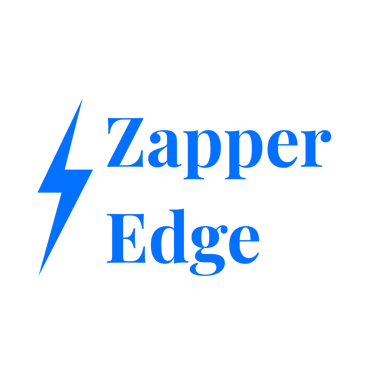AI-Ready Data Pipeline — Enterprise Data Governance for AI/ML Operations
The problem
Large enterprises running AI agents, ML models, or multi-engine data processing pipelines routinely ingest data from many sources — legacy databases, partner feeds, CSV exports, APIs, sensor/IoT streams and third-party platforms. This heterogeneity frequently produces:
Inconsistent schemas and formats,
Incomplete or malformed records,
Duplicate or redundant rows, and
Missing or incorrect metadata.
The Result:
Fragile AI pipelines, unreliable feature extraction, longer model training cycles, and higher operational overhead for Data Engineering teams. The business needed a repeatable way to clean, normalize, and provision data so AI agents and processing engines could consume it reliably at scale.
ZapperEdge solution
ZapperEdge delivered an integrated ETL/ELT + data governance service built on the ZapperEdge data platform. We combined hands-on data engineering services with platform capabilities to deliver production-ready datasets for AI consumption.
Core components:
Source connectors & ingestion — batch and streaming connectors for databases, FTP/HTTP, cloud storage, APIs and partner feeds with support for CDC (change-data-capture).
Data profiling & validation — automated profiling to identify schema drift, nulls, outliers and quality rules.
Normalization & schema mapping — canonical schema creation, type coercion, and field mapping to unify heterogeneous inputs.
Deduplication & record linkage — deterministic and probabilistic dedupe to remove redundancies and consolidate identities.
Enrichment & transformation — lookups, standardization, derived fields and lightweight enrichment (e.g., geo, taxonomy).
Metadata, lineage & cataloging — persistent metadata, data lineage tracking and catalog entries to enable discoverability and governance.
Delivery & consumption — publish cleaned datasets to feature stores, data lakes, or direct API endpoints for AI agents and downstream engines.
Observability & alerting — data quality dashboards, SLA monitoring and alerts for schema drift or pipeline failures.
We packaged this as a managed engagement (data onboarding + ruleset authoring) plus ZapperEdge platform orchestration so the customer had a low-friction path from raw file to production-ready dataset.
Implementation (high level)
Assess & profile: Run automated profiling across inbound feeds to establish baseline data quality metrics and required transformations.
Define canonical model: design a unified target schema aligned to downstream AI feature requirements.
Author transformation pipeline: implement normalization, validation rules, deduplication logic and enrichment functions in reusable pipeline templates.
Automate ingestion & scheduling: deploy connectors and pipelines for both batch and streaming ingestion with retries and SLA controls.
Enable governance: register datasets in the catalog, enable lineage and push DQ metrics to dashboards.
Hand-off & operate: provide runbooks and optionally operate pipelines as an ongoing managed service, with CI/CD for pipeline changes.
Business & technical outcomes
Faster ML time-to-value: reduced data-prep time for data scientists — cleaned, schema-consistent datasets available for immediate model training and inference.
Improved model reliability: fewer training errors and lower production drift due to standardized inputs and rigorous data validation.
Operational efficiency: reusable pipeline templates and automation cut manual ETL work and reduced incident resolution time.
Scalable consumption: datasets delivered in formats consumable by feature stores, Spark jobs, or real-time inference endpoints.
Governance & auditability: lineage and metadata allowed compliance teams and ML auditors to trace features back to source records.
Why Azure partners and enterprise customers should care?
Integration ready: designed to integrate with Azure Data Lake, Azure Synapse, Databricks and Azure Event Hubs / Kafka-based architectures.
DataOps friendly: supports pipeline CI/CD, template-driven transformations and operational observability for enterprise-grade DataOps.
AI-ready outputs: produces deterministic, feature-aligned datasets that accelerate model development and reduce inference risk.
Governance & compliance: lineage, cataloging and DQ metrics help satisfy regulatory and audit requirements for sensitive data.
Zapper Edge LLC
1621, Central Avenue,
Cheyenne, WY 82001, USA
Write to Us : Contactus@zapperedge.com



